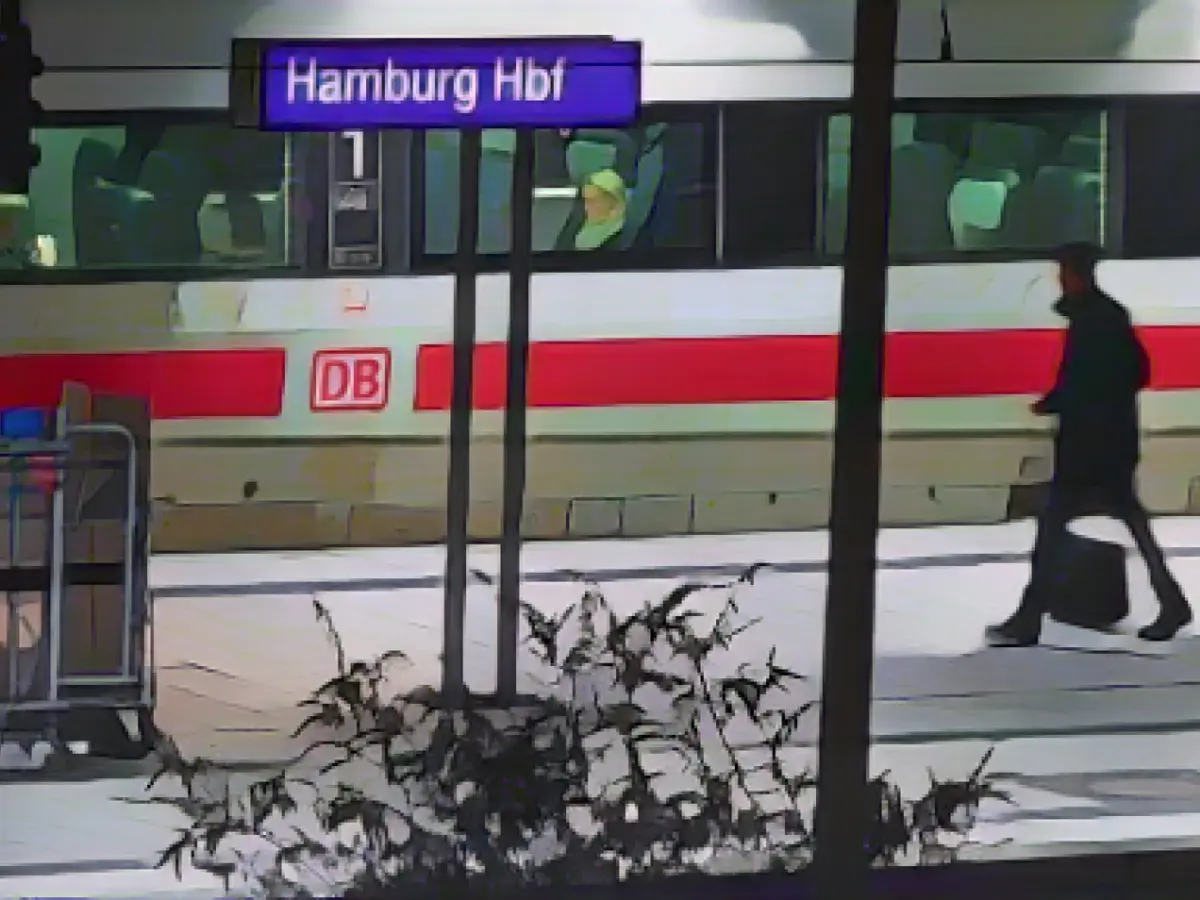Tariffs - Warning strike largely paralyzes rail traffic
The German Train Drivers' Union (GDL) has been paralyzing large parts of rail traffic in Germany with a nationwide warning strike since Thursday evening. The emergency timetable has started, the railroad announced on Friday morning. The announcement had apparently reached most passengers in good time. The situation at many train stations in Germany was very calm early on Friday morning, said a Deutsche Bahn spokesperson in Berlin. "The GDL is spoiling the Advent weekend for millions of passengers with this last-minute strike announcement."
The federally owned company has once again suspended around 80 percent of long-distance services. In regional transport, however, there are major differences depending on the region, said the spokesperson. Thousands of trains are likely to be affected. Deutsche Bahn did not initially provide exact figures. "There are 50,000 trains a day in Germany," was all that was said in the morning. However, this also includes trains from railroad companies that are not directly affected by the strike.
The aim of Deutsche Bahn is to be able to offer the regular timetable again in full by Saturday morning. "We are doing everything we can to ensure that everything is running again by the start of operations on Saturday," emphasized the spokesperson. However, the effects on freight traffic will be felt for longer. Even before the start of the warning strike, around 170 trains had been jammed due to the winter chaos in Bavaria, as the railroad announced on Thursday. "It is to be feared that this number will double," said a spokesperson.
Industrial action until 10 p.m.
This is the second warning strike by the train drivers' union GDL in the current collective bargaining round at Deutsche Bahn. It began at 10 p.m. on Thursday evening for passenger services and a few hours earlier for freight services. The industrial action is set to last until Friday evening at 22:00. Not only Deutsche Bahn is affected. Its competitor Transdev is also on strike. The Nordwestbahn and the Rhein-Ruhr-Bahn of the group in North Rhine-Westphalia are affected. Transdev employees in Hanover and Central Germany were also called out on warning strike.
The GDL has since declared the wage negotiations at both companies to have failed. The main sticking point in both cases is the GDL's demand for a reduction in weekly working hours for shift workers from 38 to 35 hours with full pay compensation. The employers have so far rejected this.
Passengers can breathe a sigh of relief after the warning strike. GDL boss Weselsky has ruled out further industrial action up to and including January 7. After that, anything is possible again.
Read also:
- This will change in December
- German activists speak out in Dubai on suffering in Israel and the Gaza Strip
- Nuclear fusion - hype or solution to energy problems?
- Budget crisis fuels debate on citizen's income - Bas warns against populism
- The warning strike by the Union of German Locomotive Drivers (GDL) has severely impacted rail traffic in Germany, leading to the suspension of around 80% of long-distance services.
- Claus Weselsky, the head of GDL, ruled out any further industrial action until January 7, providing some relief to passengers after the strike.
- The railroad industry in Germany has been affected by two warning strikes by the GDL in the current collective bargaining round with Deutsche Bahn, causing significant disruptions to both passenger and freight rail traffic.
- One of the main issues in these wage negotiations is the GDL's demand for a reduction in weekly working hours for shift workers from 38 to 35 hours with full pay compensation, which the employers have so far rejected.
- Freight traffic has been significantly impacted by the strikes, with around 170 trains already jammed before the current strike due to the winter chaos in Bavaria.
- The effects of the current warning strike have largely paralyzed rail traffic in Germany, leading to the implementation of an emergency timetable by Deutsche Bahn.
- In addition to Deutsche Bahn, Transdev and its subsidiaries such as Nordwestbahn and Rhein-Ruhr-Bahn are also affected by the current warning strike, causing disruptions to train services in various parts of Germany.
Source: www.stern.de







